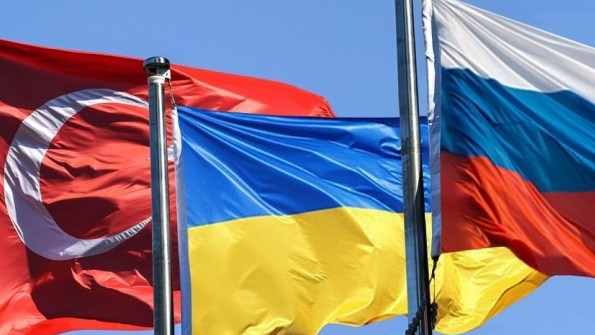The centerpiece of this diplomatic flurry is the third round of Russia-Ukraine peace talks, hosted by Turkey in Istanbul, with significant U.S. involvement. This follows two previous Turkish-mediated discussions since the war began in 2022. The developments are interpreted as a concerted push for resolutions across these three critical fronts, with U.S. President Donald Trump, Russian President Vladimir Putin, and Turkish President Tayyip Erdoğan playing pivotal roles. If successful, this multifaceted approach could see Turkey alleviate security concerns to its north (Russia-Ukraine) and south (Syria, PKK). At the same time, Russia could potentially secure territorial and industrial gains and exit its costly war economy. The U.S. aims to reduce its European and Middle Eastern burdens, potentially having regional allies cover costs. Ukraine, however, is positioned as the primary loser, its only gain being the prevention of further losses.
From President Trump's perspective, this initiative serves to address what his camp views as intractable situations in Ukraine and Syria, exacerbated during previous Democratic administrations. His strategy involves leveraging unconventional diplomatic methods to reduce U.S. global commitments, allowing a greater focus on domestic issues and the trade rivalry with China. A key component of this is making Arab nations, particularly Saudi Arabia, the UAE, and Qatar, bear the financial costs of U.S. operations in the Middle East, with recent tours reportedly securing $4 trillion in contributions and $10 trillion in deals. Trump also aims to "win back" Turkey, a crucial regional ally, and diversify U.S. Middle East policy beyond a sole focus on Israeli interests, considering broader implications involving Iran, the Caucasus, and China.
On the Russian front, President Putin appears to have consolidated his gains, including Crimea and a land bridge, which even President Trump seems to acknowledge. However, the prolonged war economy is taking its toll. A significant internal move by Putin—the dismissal of General Oleg Salyukov, Commander of the Ground Forces and a Kremlin hardliner involved in the Crimea annexation, Syria, and Ukraine operations—coincided with the decision to send a strong delegation to the Istanbul talks, hinting at a potential shift or internal consolidation.
President Erdoğan has been central to these maneuvers. His participation in a quadrilateral meeting on Syria's future in Saudi Arabia, part of Trump's Middle East tour, underscored Turkey's regional significance. The subsequent confirmation of the Istanbul talks for May 15th (later shifted to May 16th) involved intense diplomacy, including a lengthy meeting between Erdoğan and Ukrainian President Zelenskyy in Ankara to secure Ukraine's participation. Turkish Foreign Minister Hakan Fidan has actively engaged with Russian, U.S. (Secretary of State Marco Rubio), and Syrian counterparts.
Crucially, these diplomatic efforts are intertwined with Turkey's goal of a 'Terror-Free Turkey.' Reports indicate Trump has urged Syrian Interim President Ahmed Shara to expel foreign fighters and transfer control of ISIS detention camps (currently YPG-SDF guarded) to Damascus in exchange for sanctions relief, with Erdoğan offering Turkish assistance. This comes as the PKK leadership in Iraq's Qandil mountains reportedly announced an 'end to armed struggle' and 'self-dissolution' on May 12th, a development that significantly aids Ankara's diplomatic leverage. This move by the PKK could potentially lead to a significant shift in the dynamics of the Kurdish issue, with implications for the ongoing diplomatic negotiations.
This 'new generation diplomacy,' emphasizing common interests backed by implied strength, faces a critical test. For Turkey, the most significant potential gain is a political solution to the Kurdish issue via the PKK's disarmament. However, Erdoğan also faces internal challenges in balancing domestic political currents, particularly the opposition's criticism of his foreign policy decisions and the Kurdish issue, to ensure stability and fully capitalize on these unfolding international opportunities.
